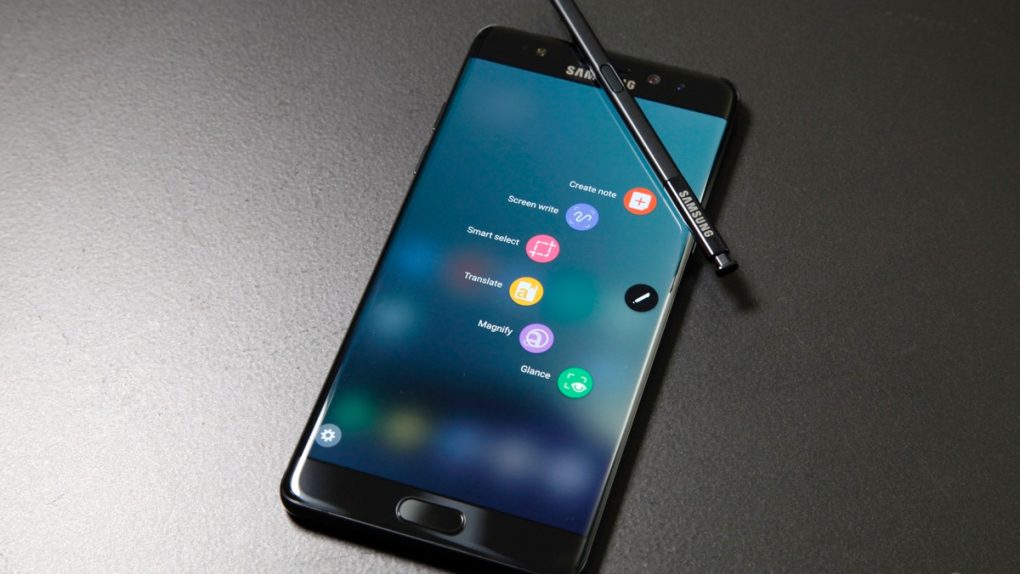Two things are exploding in the mobile world right now: iPhone 7 sales and Galaxy Note 7 units. The former is hazardous to your wallet, while the latter might put your life in danger. Samsung was forced to recall its 2016 flagship phablet after a few dozen units went up in flames. It announced the painful recall just a few days before Apple’s iPhone 7 event, effectively putting a temporary halt to sales.
Its best weapon against the iPhone 7 Plus is currently on pause, and it might never recover. And it turns out that Samsung’s fear of the iPhone, and of the iPhone 7 in particular, is what may have caused this whole disaster.
DON’T MISS: Apple confirms all iPhone 7 Plus and iPhone 7 Jet Black models are sold out
When it’s all good and done, Samsung will probably never really tell us how many Galaxy Note 7 units exploded. It will probably not even reveal what’s wrong with the faulty battery packs either, although it will have to provide some information to regulatory bodies in Korea, and maybe other countries.
So far Samsung said that initial findings revealed that the anode and cathode come in contact in some of these batteries, which isn’t supposed to happen in any battery. This leads to overheating and explosions.
And reports said that it’s a Samsung subsidiary, Samsung SDI, that made all these faulty Galaxy Note 7 batteries.
So, how is it possible that a company like Samsung makes such a terrible mistake? After all, the Galaxy Note 7 isn’t its first phone, and the battery wasn’t just invented yesterday.
It probably all boils down to this: Samsung is still very afraid of Apple. And it’s very afraid of iPhone. And it’s probably particularly afraid of the iPhone 7.
Samsung hurried to launch the Galaxy Note 7 a full month ahead of the iPhone 7, and the decision may have affected quality control checks. Samsung also wanted a much bigger battery in a slim phone, so that battery life would potentially be a major differentiating factor between iPhone and Galaxy Note. The only way to ensure battery life is more than decent for Samsung is to go for bigger capacity. The company is nowhere near Apple when it comes to optimizing the internal components and the software to offer better battery life without significantly bumping up capacity.
You don’t have to agree with me. But that’s pretty much what battery experts implied when talking to the Korea Herald about Samsung’s worst Galaxy scandal in history.
Ultra-thin walls separating combustible components is what’s making phones explode after overheating. “If the separators fail, a chemical reaction can quickly escalate out of control,” the Herald noted.
“The flaw in the manufacturing process resulted in the negative electrodes and the positive electrodes coming together,” Samsung’s Koh Dong-jin told reporters in Korea. Koh also said that a “tiny error” in manufacturing caused the problem.
“If Koh’s argument is right, that makes Samsung SDI a third-rate company,” Korea Electronics Technology Institute former director Park Chul Wan said. “But it does not appear to be a simple battery problem.”
Park lead the next-gen battery research center at the Institute. He added that the kind of manufacturing error Koh is talking about is “unimaginable for top-notch battery makers with adequate quality controls.”
“There was no choice but to make the separator (between positive and negative anodes) thin because of the battery capacity,” Lee Sang-yong said. Lee is a professor at the Ulsan National Institute of Science and Technology who worked more than 10 years at LG Chem. Thicker walls would add safety, but they might not prevent overheating issues.
“Even with a small manufacturing mistake, if there had been enough elements to ensure safety, it would not explode,” Doh Chil-Hoon told the paper. “It is a roundabout way of admitting weak safety.”
Doh, who runs the Korea Electrotechnology Research Institute’s battery research division says that the push to increase battery power was part of the problem.
The Galaxy Note 7 has a 3,500 mAh battery that’s “one of the highest, if not the highest, capacity battery we’ve seen in a phone,” according to IHS Markit Technology analyst Wayne Lam. He says that the issue comes from weak controls in manufacturing rather than poor or unsafe design.
“You have two different trajectories, with Samsung packing in more energy density, versus Apple, trying to trim it down by optimizing everything else,” Lam said, adding that the two rivals are “constantly locked in this arms race of improving and one-upping.”








